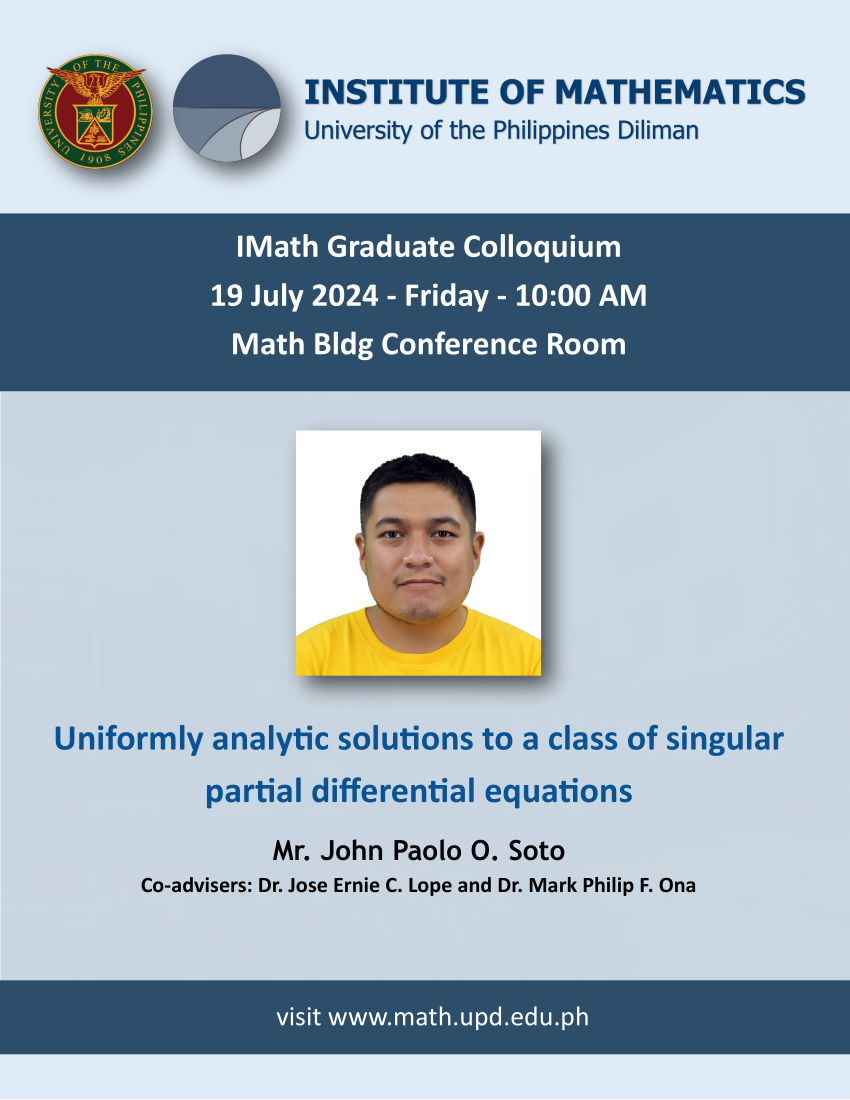IMath Graduate Colloquium: Mr. John Paolo O. Soto

You are all invited to attend the IM Graduate Colloquium to be held on 19 July 2024 (Friday), 10:00 AM at the Conference Room of the Institute of Mathematics Building. Our speaker will be Mr. John Paolo O. Soto of the Differential Equations Research Group.
John Paolo O. Soto (Differential Equations Group)
Title: Uniformly analytic solutions to a class of singular partial differential equations
Abstract: Consider the following singular nonlinear partial differential equation, which was modelled after the ordinary differential equation studied by Briot and Bouquet in 1856:
\begin{equation}
t\partial_tu=F(t,x,u,\partial_xu).
\label{gerard} \tag{M}
\end{equation}
In 1990, Gérard and Tahara considered the case when \(F(t,x,u,v)\) is holomorphic with respect to all variables. They were able to show that \(\eqref{gerard}\) admits a unique holomorphic solution under some assumptions on \(F\). The equation was further studied by Lope, Roque and Tahara in 2012, where they considered the case when \(F\) is holomorphic with respect to the variables \(x\), \(u\) and \(v\), but is only continuous in \(t\). Under some growth conditions on the coefficients of the partial Taylor expansion of \(F\), they were able to show the unique existence of a solution that is continuous in \(t\) and holomorphic in \(x\).
In this talk, we will consider the case when \(F(t,x,u,v)\) is holomorphic with respect to the variables \(u\) and \(v\), continuous with respect to \(t\), and only uniformly analytic with respect to \(x\). We will use the formal norms introduced by Tolentino, Bacani and Tahara (2016) together with the method of successive approximations to constructively obtain a unique solution to \(\eqref{gerard}\) which is continuous in \(t\) and uniformly analytic in \(x\). Moreover, we will show that the unique solution also satisfies similar growth conditions to the coefficients of the partial Taylor expansion of the function \(F\).
